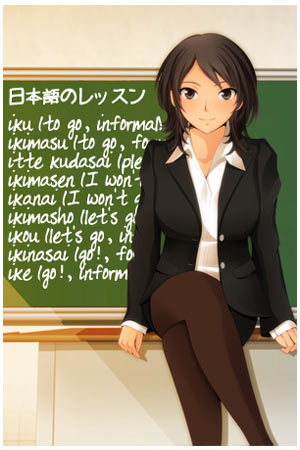The Japanese language is famous for being difficult to learn, and was once thought to be an invention of the Devil to halt the spread of Christianity in the country. I disagree — I’m sure Japanese is no more or less hard to master than any other language, and its grammar system is definitely much simpler than the convoluted system we have in English, with influences from French, Latin and Ancient Greek. Still, there are certain aspects of the language that were a challenge to get down, such as the way subjects are often left off of sentences if the meaning is clear from the context. Another is Japan’s “agglutinative” nature, which just means a lot information is stored in the verb form rather then having a lot of helping verbs flying around, like “he would have been able to go if his bike hadn’t been stolen.” In effect this means you have several conjugated forms to learn for any given verb, for example ikimasu / iku (formal / informal for “[I] go”), ikimashita / itta (informal / formal for “[I] went”), forms for causative and passive voice and so on, all usually following clear patterns. If you ever wondered what the difference between ganbatte and ganbare were, the former is the “te form” which is a polite request (“please do your best”), while the latter is the informal imperative form (e.g. “do your best!”).

Japanese sentences store lots of information in the verb form.














